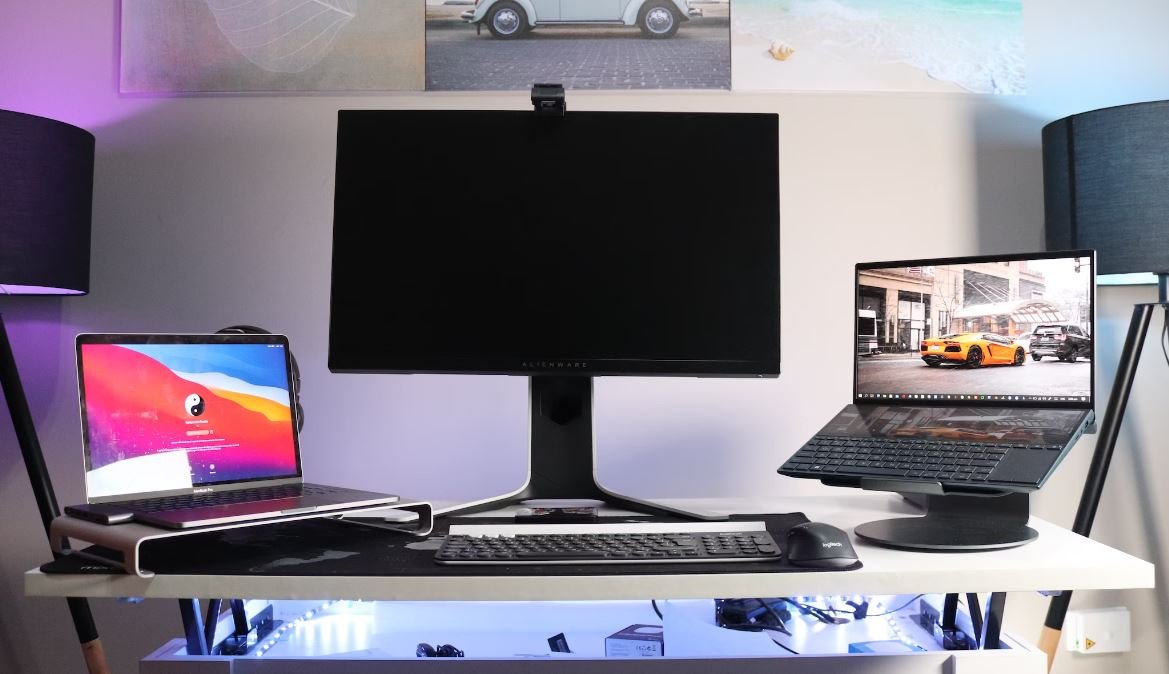When Technology Was Invented
The world of technology has evolved rapidly over the years, but have you ever wondered when it all began? Let’s take a journey through time and discover the key milestones in the history of technology.
Key Takeaways
- Technology has evolved significantly over time, transforming the way we live and work.
- Important inventions have shaped the course of human history.
- Advancements in technology continue to drive society forward.
The Early Beginnings: Ancient Inventions
Technology has been present since ancient times, with notable inventions like the wheel and writing paving the way for future developments. These inventions revolutionized transportation and communication.
- The wheel, invented around 3500 BCE, enabled the creation of wheeled vehicles, making transportation easier and more efficient.
- The development of writing systems, such as cuneiform and hieroglyphics, allowed people to record information and communicate across distances.
The Industrial Revolution: Era of Machines
The Industrial Revolution, which took place in the 18th and 19th centuries, marked a significant turning point in human history. It introduced mass production and brought about the rise of technological innovations such as the steam engine and the telegraph.
- James Watt’s steam engine, patented in 1769, powered factories, ships, and trains, providing a major boost to industry and transportation.
- The invention of the telegraph by Samuel Morse in 1837 allowed for instantaneous long-distance communication, revolutionizing the way information was transmitted.
The Digital Revolution: Computing and beyond
The 20th century witnessed the rise of the digital revolution, completely transforming the world of technology. Inventions such as the computer, the internet, and the smartphone have become integral parts of our daily lives.
- The first electronic programmable computer, ENIAC, was completed in 1945, paving the way for the development of modern computers.
- The creation of the internet in the late 1960s allowed for global connectivity and information sharing on an unprecedented scale.
- The introduction of smartphones in the early 2000s revolutionized communication and made technology accessible to people around the world.
Tables: Key Inventions and Dates
| Technology | Invention Date |
|---|---|
| Wheel | 3500 BCE |
| Writing Systems | Cuneiform: 3200 BCE Hieroglyphics: 3100 BCE |
| Technology | Invention Date |
|---|---|
| Steam Engine | 1769 |
| Telegraph | 1837 |
| Technology | Invention Date |
|---|---|
| Computer | 1945 |
| Internet | Late 1960s |
| Smartphone | Early 2000s |
The Constant Evolution
Technology continues to advance at an astounding pace, driving innovation in various fields. With the advent of artificial intelligence, robotics, and augmented reality, we are witnessing the dawn of a new era.
- Artificial intelligence is revolutionizing industries like healthcare and transportation, enabling faster and more accurate decision-making processes.
- Robotics is transforming manufacturing and automation, increasing productivity and efficiency in various sectors.
- Augmented reality is reshaping how we interact with the world, merging digital elements with our physical surroundings.
Opportunities and Challenges Ahead
While technology has revolutionized our lives in countless ways, it also poses challenges and ethical considerations. We must navigate issues such as privacy, cybersecurity, and the digital divide to ensure everyone benefits from technological advancements.
Ultimately, technology has become an integral part of our existence, shaping how we communicate, work, and live. It is an ever-evolving force that continues to push boundaries and transform our world.

Common Misconceptions
Technology Was Invented in the Recent Past
One common misconception about technology is that it was invented in the recent past. The truth is that technology has been around for centuries, starting with simple tools like stone axes and wheels. It has steadily evolved over time, leading to the inventions we see today.
- Technology dates back centuries, not just a few decades.
- Early technology was much simpler compared to modern inventions.
- Advancements in technology have been gradual and continuous.
Technology Is Only for Young People
Another common misconception is that technology is primarily for young people. While it is true that younger generations may be more tech-savvy due to growing up with advanced technology, people of all ages use and benefit from technology. From elderly individuals using smartphones to connect with loved ones to seniors learning to use computers for online shopping, technology is accessible to everyone.
- Technology is used and enjoyed by people of all age groups.
- Older generations can learn and adapt to new technologies.
- There are various tools and resources available to make technology more accessible to seniors.
Technology Solves All Problems
One misconception that people often have is that technology solves all problems. While technology has undoubtedly made our lives easier in many ways, it is not a magical solution for every challenge we face. Sometimes, technology can even create new issues or complicate existing ones. It is important to recognize that technology is a tool that should be used wisely and in conjunction with other problem-solving approaches.
- Technology has its limitations and may not solve all problems.
- Over-reliance on technology can lead to new challenges.
- Effective problem-solving requires a holistic approach beyond technology alone.
Technology Makes Us Less Social
A common misconception is that technology makes us less social. While it is true that excessive use of technology can lead to isolation and reduced face-to-face interaction, it also enables us to connect with others in ways that were not possible before. Social media platforms, video calls, and online communities bring people together from around the world. It is ultimately up to individuals to use technology responsibly and balance it with real-life social interactions.
- Technology can enhance social connectivity and create new relationships.
- Excessive use of technology can lead to social isolation if not managed appropriately.
- A healthy balance between online and offline social interactions is important.
Technology Is Always Reliable
Many people believe that technology is always reliable, but this is not the case. While technology has become increasingly advanced and reliable, it is still vulnerable to malfunctions, errors, and cyber threats. Whether it’s a computer crash, a network failure, or a software bug, technology is not infallible. It is crucial to have backup plans and precautions in place to mitigate the potential risks associated with technology.
- Technology can fail due to various factors beyond our control.
- Cybersecurity threats pose a risk to the reliability of technology.
- Backup systems and contingency plans are essential to minimize disruptions caused by technology failures.

Timeline of Technological Inventions
In this timeline, we explore some remarkable technological inventions throughout history that have revolutionized the way we live, communicate, and interact with the world.
First Programmable Computer
Discover the birth of the first-ever programmable computer, the Z3, developed by German engineer Konrad Zuse in 1941. This groundbreaking invention laid the foundation for modern computing technology, enabling complex calculations and data processing.
Internet – Connecting the World
Explore the advent of the internet in the late 1960s, a network that would eventually interconnect billions of devices worldwide. This unprecedented invention revolutionized communication, knowledge sharing, and transformed industries across the globe.
GPS Navigation
Dive into the world of satellite-based Global Positioning System (GPS) technology, which enables precise navigation and location tracking. Initially developed for military purposes, GPS now plays a vital role in everyday life, guiding us on our journeys and helping us explore new destinations.
Mobile Phones: The Evolution
Uncover the evolution of mobile phones from their humble beginnings to the sophisticated smartphones we rely on today. Witness how these devices have evolved, becoming an indispensable tool for communication, entertainment, and staying connected in an ever-connected world.
World Wide Web
Enter the realm of the World Wide Web, an unprecedented system of interconnected webpages and information. Tim Berners-Lee’s invention in 1989 revolutionized how we access and share information, ultimately becoming an essential part of our daily lives.
Social Media Impact
Examine the impact of social media on society, from its humble origins to a global phenomenon. This table highlights the exponential growth and influence of platforms such as Facebook, Twitter, and Instagram, shaping how we connect, engage, and share with the world.
Analog to Digital Photography
Witness the transformation of photography from analog to digital, and the rise of digital cameras and smartphones. This technological shift revolutionized the way we capture and share moments, making photography accessible to all and enabling instant visual communication.
Artificial Intelligence Breakthroughs
Explore remarkable breakthroughs in the field of Artificial Intelligence (AI), from early AI research to recent advancements. This table showcases the development of technologies such as IBM’s Deep Blue, Google’s AlphaGo, and Tesla’s self-driving cars, showcasing the boundless potential of AI.
Streaming Services: Changing Entertainment
Delve into the world of streaming services, which have revolutionized how we consume entertainment. From the pioneer Netflix to the extensive range of platforms available today, witness the impact of these services on traditional media consumption and the rise of on-demand entertainment.
From the birth of programmable computers to the rise of Artificial Intelligence and digital photography, technology has progressed at an astonishing rate throughout history. These inventions and advancements have shaped our world, connecting us in ways previously unimaginable and transforming industries across the board. As we continue into the future, it is thrilling to speculate on the innovations that await us and how they will continue to shape our lives.
Frequently Asked Questions
When Technology Was Invented
- What is the history of technology?
- The history of technology dates back to ancient times when humans first started using tools made from bones, wood, and stones. Over time, technological advancements expanded, leading to the creation of more sophisticated tools.
- Who invented the first computer?
- The first computer, known as the “Analytical Engine,” was conceptualized by Charles Babbage in the 1830s. However, due to technological limitations, it was never built during his lifetime. The first functional programmable computer, the Z3, was invented by Konrad Zuse in 1941.
- When was the internet invented?
- The precursor to the internet, called ARPANET, was developed in the late 1960s by the Advanced Research Projects Agency (ARPA) of the United States Department of Defense. It laid the foundation for what we now know as the internet.
- When were smartphones introduced?
- The first smartphone, called IBM Simon Personal Communicator, was introduced in 1992. However, it was quite different from today’s smartphones. The modern smartphone, incorporating advanced features like touchscreens and internet connectivity, wasn’t introduced until several years later.
- What was the first video game ever created?
- The first video game, known as “Tennis for Two,” was created by physicist William Higinbotham in 1958. It was a simple game that used an oscilloscope and allowed two players to control paddles and play a game of virtual tennis.
- When did the first commercial television broadcasts begin?
- The first commercial television broadcasts began in the late 1920s and early 1930s. The BBC in the United Kingdom and NBC in the United States were among the pioneers in broadcasting regular television programs.
- When were the first electric cars invented?
- The first practical electric car was invented by Thomas Davenport in the early 19th century. However, electric cars did not become widely popular until the late 20th century when advancements in battery technology and environmental concerns led to renewed interest in electric vehicles.
- Who invented the telephone?
- The telephone was invented by Alexander Graham Bell in 1876, although others were also experimenting with similar technologies around the same time. Bell’s invention revolutionized communication and laid the foundation for modern telecommunications.
- When was the first camera invented?
- The first practical photographic camera, known as the daguerreotype camera, was invented by Louis Daguerre and Nicéphore Niépce in 1839. This camera allowed for the creation of permanent images.
- What was the first artificial satellite launched into space?
- The first artificial satellite, called Sputnik 1, was launched into space by the Soviet Union on October 4, 1957. It marked the beginning of the space age and ignited the space race between the Soviet Union and the United States.




